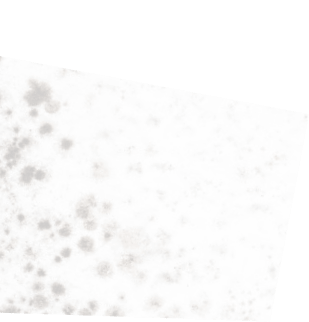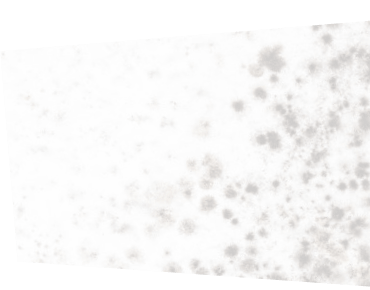We’ve all seen it: a fuzzy white or green spot on our bread or maybe black discoloration where water once leaked in the basement. Mold.
It comes in many shapes and forms and is almost everywhere in the environment: in the air, in the soil and unfortunately, in our homes. Although we often think of mold as harmless, exposure can lead to excessive lethargy, breathing problems and skin and eye irritation or more complicated health problems if left undetected. Mold testing and eventual removal is essential to maintain the air quality of your home and prevent unwanted long-term health issues. Below we’ve answered some of the most frequently asked questions related to mold exposure symptoms and how you can test and remove mold contamination from your home.
Can you get sick from mold in your house?
The short answer is unfortunately, yes. Previous studies have found that exposure to mold can lead to upper respiratory tract symptoms in otherwise healthy people. Mold can also significantly exacerbate the symptoms of those suffering from asthma or other respiratory diseases. Many people also suffer from mold allergies, and only learn of them following symptoms to mold exposure.
What are mold exposure symptoms?
Mold exposure symptoms vary significantly depending on the age and the health of the individual exposed. Symptoms can include upper respiratory tract distress (coughing, wheezing, throat irritation), shortness of breath or difficulty breathing and skin or eye irritation. Excessive fatigue and lethargy are also associated with mold exposure.
What are the signs of mold poisoning?
Mold poisoning can occur through several different mechanisms, including through food or air exposure. Poisoning usually occurs as the result of mycotoxin exposure. ‘Toxic molds’ are molds which produce mycotoxins and pose a serious health threat. Acute (limited) exposure can result in coughing, headaches, shortness of breath, frequent chest colds and general fatigue. However, exposure to high levels of mycotoxins can result in serious neurological problems, such as memory loss, nerve issues or even death. Dietary exposure to mycotoxins is also associated with an increased risk of cancer.
What are the symptoms of mold allergies?
Mold allergy symptoms vary significantly, but usually include a runny nose, watery eyes, coughing, and potentially difficulty breathing or asthma attacks. Mold allergies are best treated by reducing or removing exposure to the causative source of mold.
What health problems are associated with mold?
If someone already suffers from asthma, seasonal allergies, or has a compromised immune system, mold exposure can be especially dangerous. The most common health problem associated with mold exposure is developing a mold allergy, but some individuals can develop chronic rhinosinusitis (chronic nasal infection) in addition to other chronic respiratory infections.
How much exposure is harmful? Are there long-term effects of mold exposure?
Mold exposure symptoms can become worse the longer you are exposed. Long-term effects of mold exposure include chronic inflammation, breathing problems, chronic fatigue and frequent chest infections. Chronic mycotoxin exposure can also specifically lead to severe neurological symptoms. The amount of exposure required to induce harm depends on the individual, their age and if they are immunocompromised.
What are the neurological symptoms of mold exposure?
The neurological symptoms of mold exposure include excessive fatigue, sensitivity to light, increased anxiety, memory loss or difficulty concentrating. Other symptoms can include decentralized pain, nerve issues and cramps.
Is there a mold exposure test? Is there a mold exposure treatment?
There are tests to determine if an individual has a mold allergy. However, because the majority of mold exposure symptoms are shared with respiratory illnesses, there are additional steps that need to be taken to determine if your symptoms are due to mold. Usually, a blood test will be conducted to determine if your body is actively fighting a mold infection. In terms of treatments, doctors can prescribe steroid-based therapeutics to treat mold allergies and help reduce the inflammation that causes allergy symptoms.
How long does it take to get sick from mold exposure and how do you know if mold is making you sick?
Symptoms can emerge immediately, or they can be delayed. Allergic and minor symptoms often emerge immediately, whereas more aggressive symptoms associated with harmful levels of exposure can take several months to even years depending on your personal health. Mold may be making you sick if you are experiencing mold exposure symptoms such as respiratory distress, chronic fatigue or allergic rhinitis. Remember that mold is not always visible, and you could be experiencing these symptoms due to exposure even if you cannot see anything growing in your home.
When should you see a doctor for mold exposure?
If mold exposure symptoms persist and are causing you distress, talk to your health care provider about your concerns.
How can I prevent mold in my home?
The best way to prevent mold is to reduce moisture in your home or workplace. Mold grows best in warm, moist environments, and therefore ensuring your indoor humidity ranges between 30-60% can help prevent growth. This can be achieved by venting bathrooms and dryers, using an air conditioner and a de-humidifier in warm weather, and using exhaust fans when cooking or cleaning. It is also important to quickly and efficiently clean up any water damage or leakage.
How can I remove mold in my home?
An important step in removing mold is to identify the water leakage that allowed excess moisture to build up and facilitate mold growth. This then needs to be fixed in order too prevent future mold from growing. Mold needs to be cleaned in two stages, first by cleaning away the surface mold and second by using industrial quality cleaners to disinfect the area completely. This should be done using personal protective equipment and is best achieved by a professional with experience in mold identification and removal.
Even though it is everywhere in the environment, it’s important to recognize when mold may be growing in your home and affecting your health. Although mold is not always dangerous, it is important to take mold growth seriously and remove it properly. If you are worried about mold in your home, the experts at Inch by Inch Inspections can help you identify and remove mold in your home. Call 416-826-7172 for a custom quote or check how you can identify and eliminate mold in your home, today!




